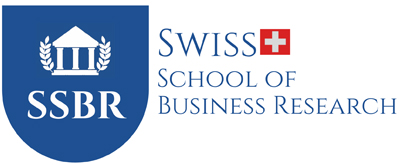Artificial intelligence (AI) technologies are reshaping various aspects of society, and higher education is no exception. Among the most promising AI technologies for higher education are Bard and ChatGPT. These advanced chatbots leverage large language models, which have been trained on vast datasets of text and code. As a result, they possess the ability to generate text, translate languages, produce creative content, and provide informative answers to queries.
The potential for Bard and ChatGPT to enhance higher education is vast and multifaceted. Here are some key areas where they can make a positive impact:
- Personalized Tutoring and Support: Bard and ChatGPT can offer personalized tutoring and support to students. By analyzing individual learning patterns, they can identify areas where students struggle and provide tailored guidance and explanations. This personalized approach enables students to receive individualized attention and assistance, enhancing their learning outcomes.
- Learning New Concepts and Skills: These AI-powered chatbots can help students grasp new concepts and develop skills. Through interactive conversations, they can explain complex topics in a clear and accessible manner, supplementing traditional classroom instruction. Students can engage in interactive dialogues with Bard and ChatGPT to reinforce their understanding and deepen their knowledge.
- Critical and Creative Thinking: Bard and ChatGPT can encourage students to think critically and creatively. By posing thought-provoking questions, challenging assumptions, and presenting alternative perspectives, these chatbots stimulate intellectual curiosity and promote higher-order thinking skills. They can serve as valuable virtual partners in the learning process, fostering a culture of inquiry and analysis.
- Feedback and Assessment: These AI technologies can provide valuable feedback on students’ work. Whether it’s evaluating written assignments, coding projects, or other forms of assessments, Bard and ChatGPT can offer constructive feedback, highlighting strengths and suggesting areas for improvement. This automated feedback mechanism can save time for educators while providing students with timely and actionable insights.
- Active Learning and Engagement: Bard and ChatGPT excel at engaging students in active learning. Through interactive conversations, simulations, and gamified experiences, these chatbots can create immersive and participatory learning environments. By actively involving students in their own learning journeys, these technologies foster deeper understanding and higher levels of engagement.
- Motivation and Learning Support: Bard and ChatGPT can motivate students to learn and persist in their educational endeavors. They can provide encouragement, offer guidance during challenging moments, and celebrate students’ achievements. This personalized support system can help students stay motivated, reducing dropout rates and improving overall student success.
Moreover, Bard and ChatGPT contribute to the accessibility and affordability of higher education. These technologies can be leveraged to provide online tutoring and support to students who reside in remote areas or face financial constraints, allowing them to access quality education from anywhere in the world. By breaking down geographical and financial barriers, Bard and ChatGPT promote inclusivity and democratize education.
Real-world examples already demonstrate the transformative potential of Bard and ChatGPT in higher education:
- University of California, Berkeley: Bard is utilized to deliver personalized tutoring in math and science courses, supporting students’ individual learning needs and helping them succeed in these challenging subjects.
- University of Southern California: ChatGPT is employed to facilitate cultural and language learning, providing students with interactive experiences that enhance their understanding of diverse cultures and languages.
- University of Washington: Bard assists students in enhancing their essay writing skills by providing real-time feedback and suggestions to improve their writing style, structure, and argumentation.
As these technologies continue to evolve, the possibilities for their application in higher education will expand even further. Bard and ChatGPT have the potential to revolutionize higher education, making learning more personalized, engaging, and effective. By leveraging the power of AI and large language models, higher education institutions can tap into the vast knowledge and capabilities of Bard and ChatGPT. These chatbots can assist in curriculum development, offering recommendations on course materials, designing interactive learning experiences, and even creating customized educational content. Furthermore, they can analyze vast amounts of student data to identify learning patterns, predict student needs, and adapt instructional approaches accordingly. This data-driven approach enables educators to optimize their teaching strategies and tailor the learning experience to each student’s unique requirements. With Bard and ChatGPT as valuable partners in the educational journey, higher education can embrace the potential of AI to unlock new frontiers of knowledge and learning.
Swiss School of Business Research (SSBR), an accredited private business school based in Zurich, Switzerland, is at the forefront of embracing innovative technologies to enhance the educational experience. Recognizing the immense potential of AI in higher education, SSBR fully encourages the use of technologies such as Bard and ChatGPT and has actively incorporated them into its syllabus, online classrooms, and advertising efforts. SSBR understands that leveraging AI-powered chatbots can greatly benefit its students by providing personalized tutoring, facilitating critical thinking, and creating engaging learning environments. By integrating these technologies, SSBR aims to stay at the cutting edge of educational advancements and prepare its students for the dynamic business landscape of the future. The school’s commitment to embracing AI in education demonstrates its dedication to providing a forward-thinking and transformative learning experience for its students.

